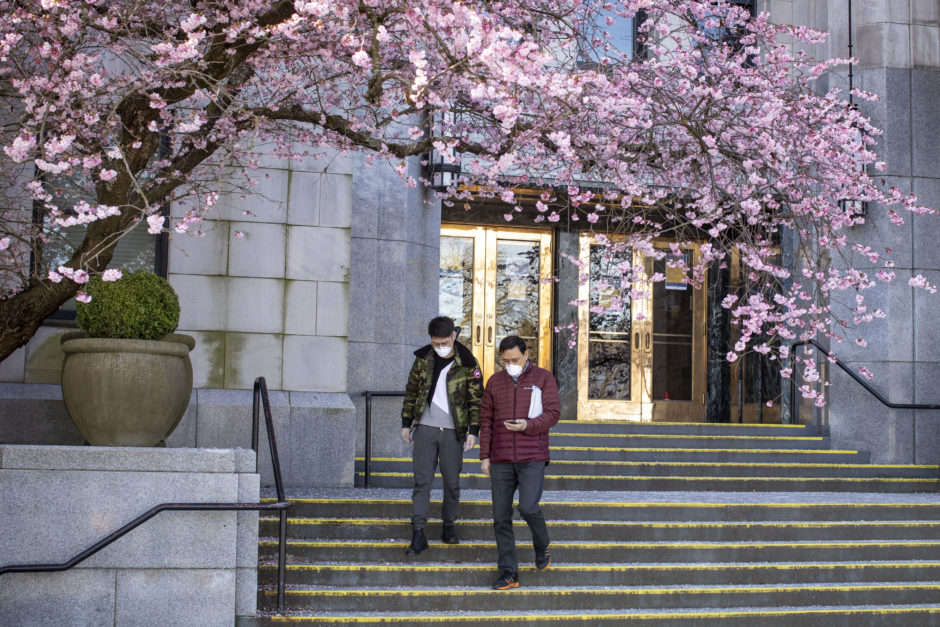“Even if you get it, it’s not that bad.”
It’s a snatch of conversation caught on Vancouver’s Lost Lagoon footpath, muttered by a stranger into his phone, walking alone under a waning spring sky.
On this week, in the year 2020, it is obvious what “it” he is speaking of, but less obvious exactly how bad it’s going to get.
Over two weeks, we’ve lost the simple pleasures of travel, concerts, weddings, parties, play dates, going to restaurants, working with our colleagues. A handshake. A hug. A kiss.
And yet, it’s springtime in the city.
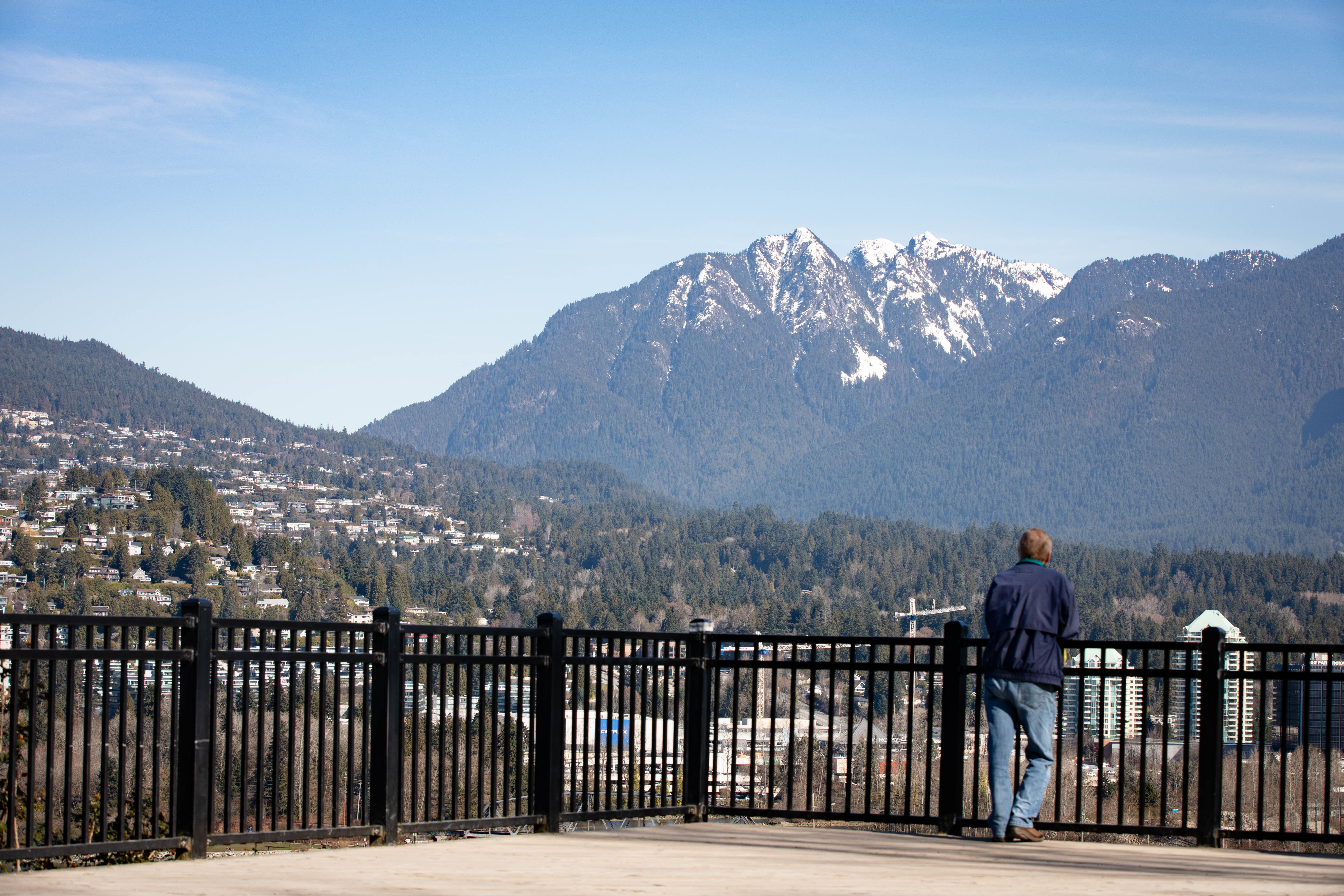
Clear blue skies, noisy songbirds, and magnolia trees laden with fat, pink blossoms make a jarring juxtaposition with our new collectively circumscribed reality.
It doesn’t have to be.
Dr. Bonnie Henry, B.C.’s provincial health officer, has prescribed a daily dose of the outside world — for anyone who isn’t self-isolating.
“It is important to get outside for a little while every now and then and make sure that you get some exercise and you get some fresh air. That’s important for our mental and physical health,” Henry said.
“But maintain your distance.”
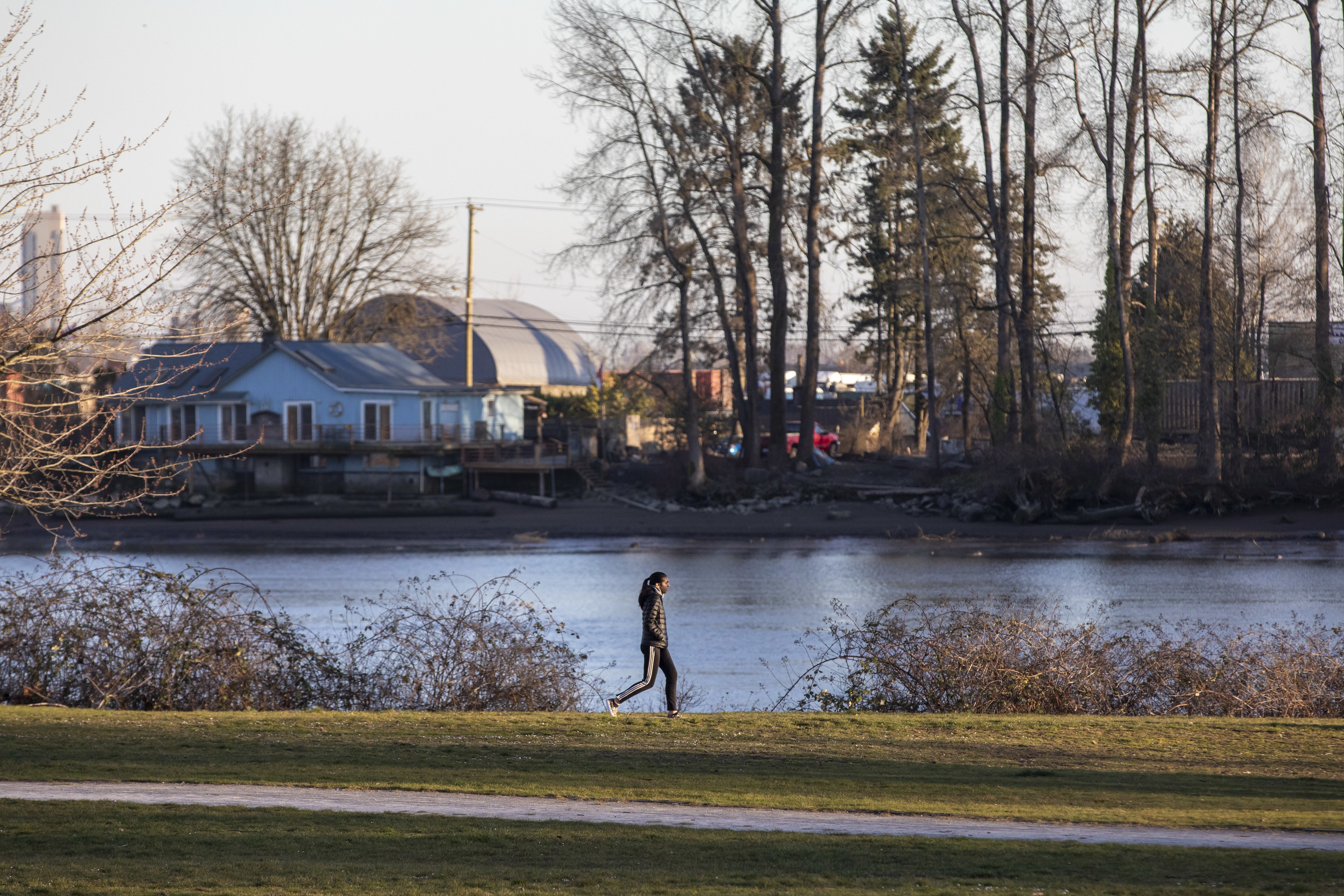
Here are the things you can still do.
Henry says yes, you can go for a walk, you can walk your pet. You can go for a bike ride. You can play with your kids as long as you keep about two metres away from other people.
You shouldn’t let your kids have play dates with other families or play pick-up basketball or beach volleyball with your friends. Do not sit in a big group on the beach and watch the sunset.
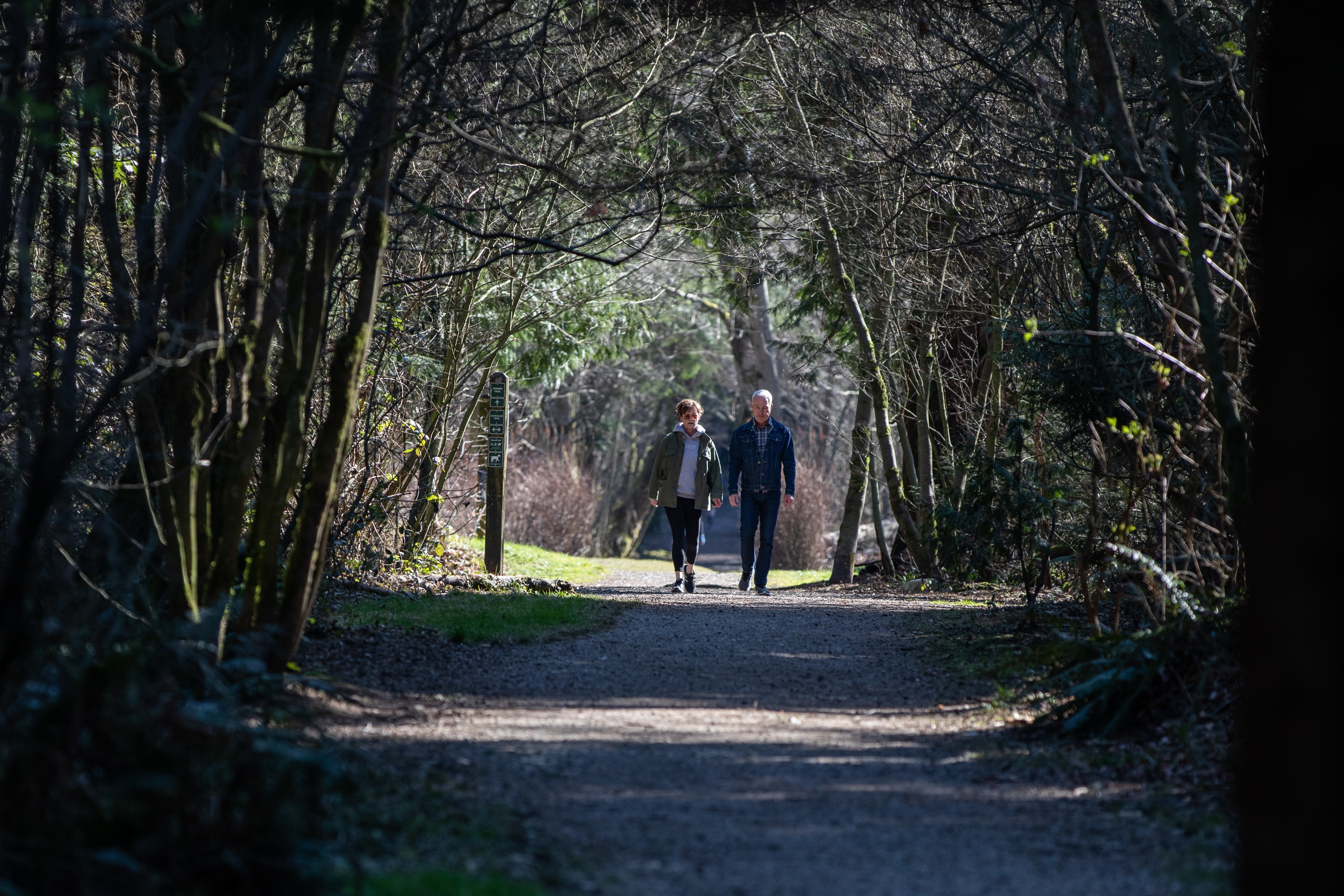
Vancouver is taking the extra step of shutting down all 166 playgrounds operated by its park board and will be putting together an informational campaign to try and stop people from crowding in popular parks and beaches.
“We know that that can transmit this virus and they bring it home to you and they bring it home to their families and that’s how it gets transmitted to seniors and elders in our community,” Henry said.
“Stay away from others.”
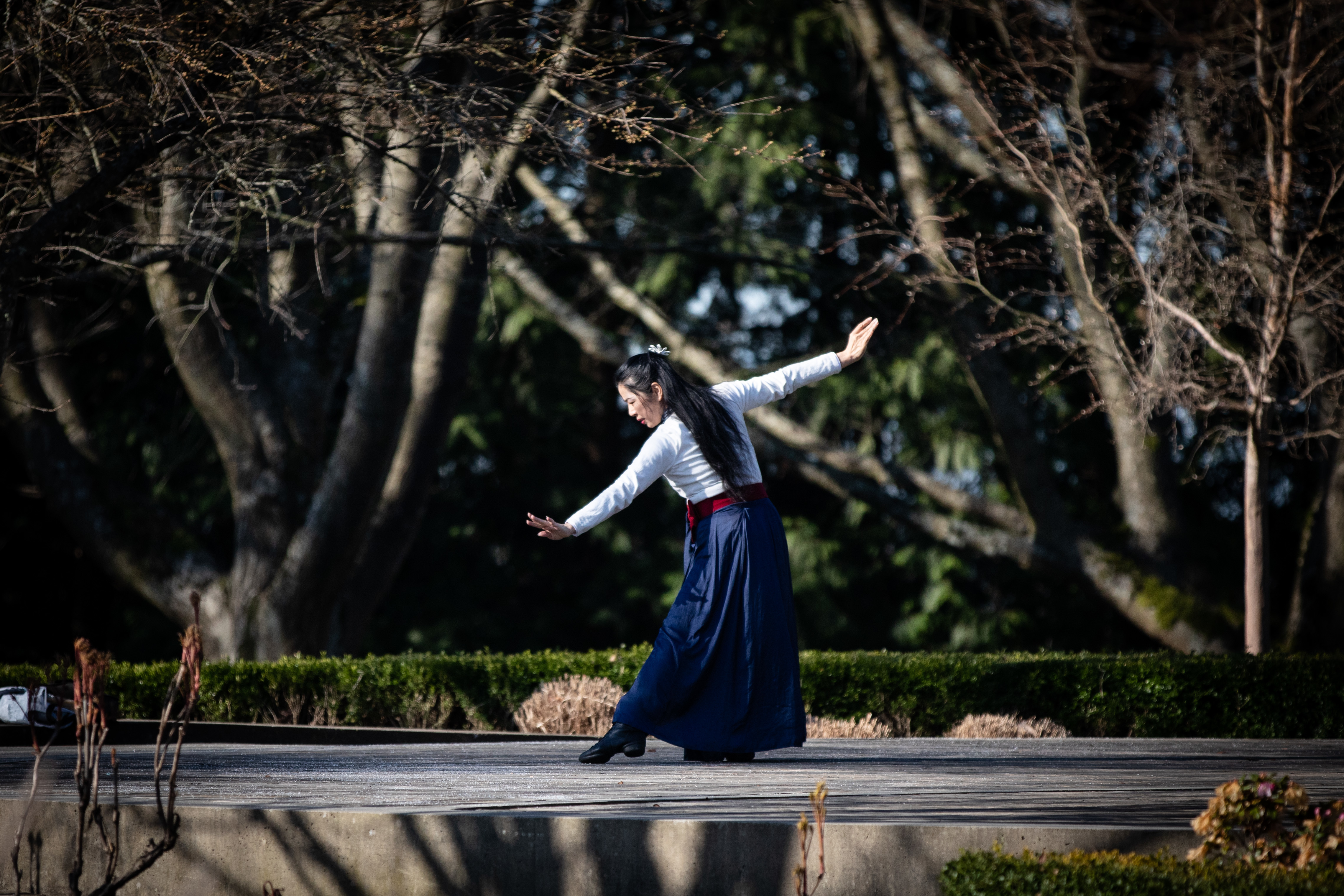
The task before us involves a great leap of imagination: keep your distance so you don’t spread a virus and hurt the most vulnerable segments of our society.
It was only in 1892 that Russian botanist Dmitri Ivanovsky first described a virus. Most of us will never see, under the microscope, this most-despised coronavirus, and most of us will not see the lives we are potentially saving by staying away from each other.
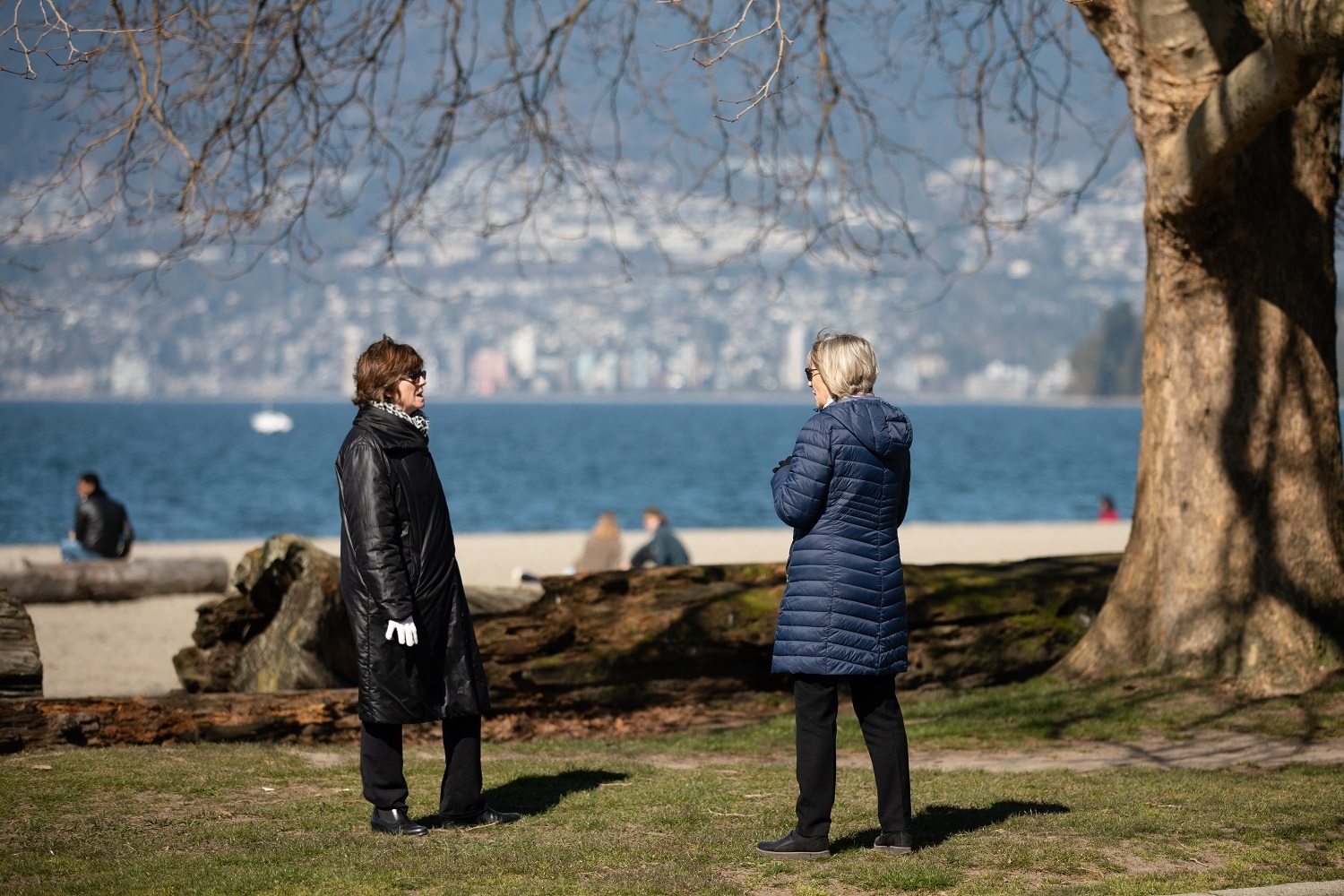
These invisible ties that have always bound us together have taken on a new urgency.
North Shore Rescue posted a message on its Facebook page imploring people to make “very conservative choices” when heading out as their own search and rescue crews are more stretched than normal.
“It became apparent today that social distancing is not possible for [search and rescue] crews. We need to meet to plan searches, we are transported by helicopter and utilize the same headsets, we share equipment and bring in people from various locations that are required for their expertise. We all then head back to our families,” it read.
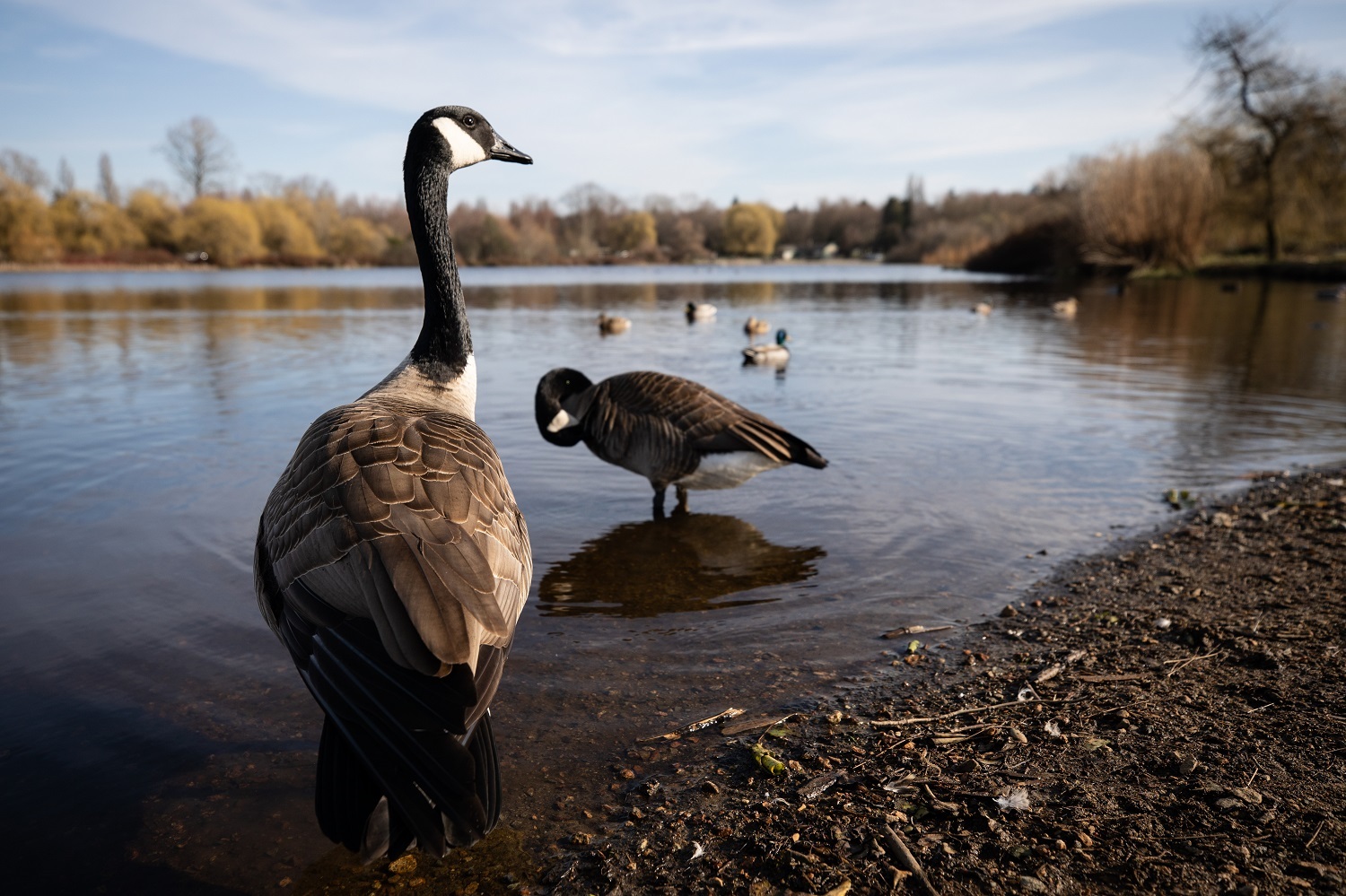
More than ever, our actions have life-and-death consequences.
We hold close our loved ones, and the strangers who we might not know, but wish to give a fighting chance, and prepare, as new spring buds do, for a new beginning.
